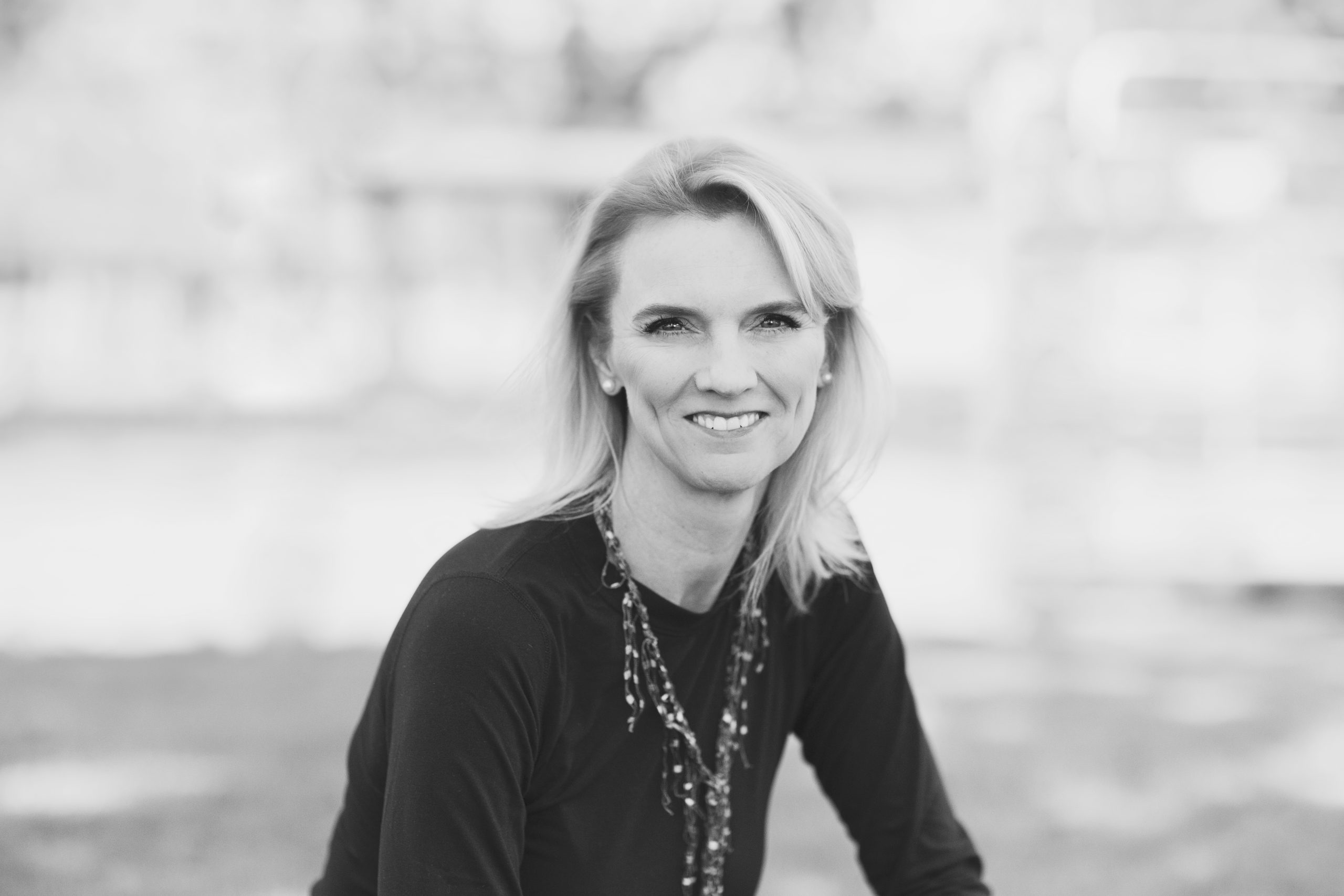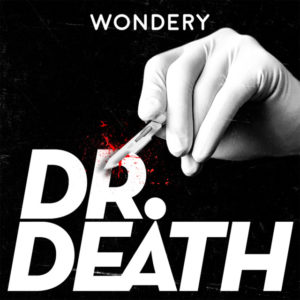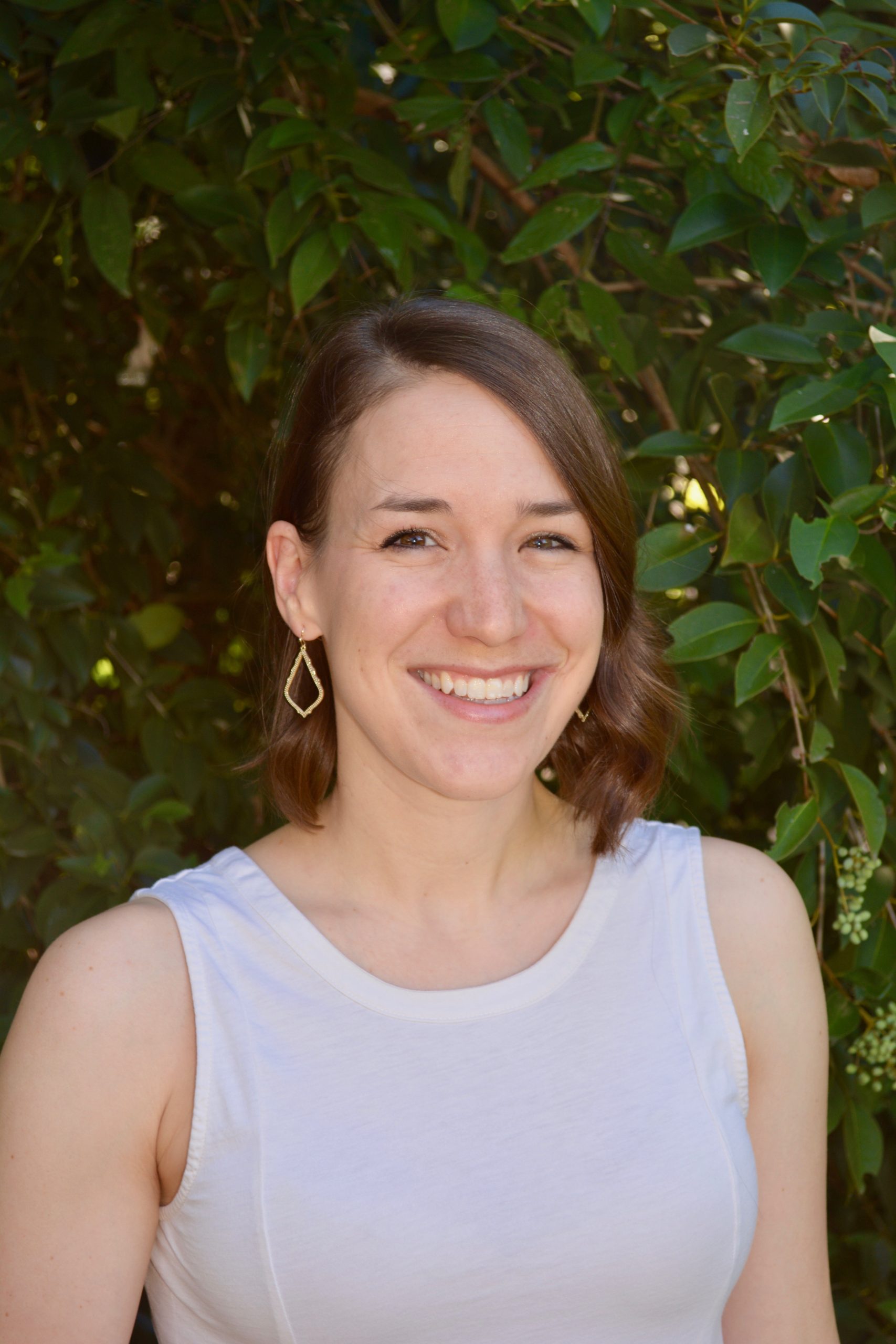
Medical reporter Laura Beil hoped at least a few people would listen to the podcast she had been working on for months in 2018. After all her hard work, she says, she just didn’t want it to be a flop. The podcast, Dr. Death, which has been downloaded more than 25 million times since it premiered in September, is anything but.
Beil’s series, produced by Wondery, chronicles the astonishing string of neurosurgeon Christopher Duntsch’s botched procedures, which ultimately killed two patients and left another 31 injured.
From 2011 to 2013, Duntsch jumped from hospital to hospital in the Dallas area, operating on patients who would often wake up in much worse shape than before their surgeries. And his missteps in the operating room were far from typical—he sewed up one patient with a sponge still inside, and he sliced through another’s vocal cords. It took years and the relentless work of many, including two other surgeons, to stop Duntsch from wielding a scalpel again. Following an unprecedented criminal case in early 2017, he was sentenced to life in prison for his actions as a surgeon. (Duntsch appealed for a new trial but last month, as Beil reports in a follow-up podcast episode, a Dallas court ruled to uphold his conviction.)
Throughout Dr. Death, Beil grapples with what allowed such an inept or possibly sociopathic surgeon to harm dozens of patients before he was finally stopped. And, she reveals that the same could easily happen again with any other problem doctor. The health care system, Beil finds, is built to protect the reputation of hospitals and doctors over the welfare of patients.
Here, Beil tells Rachel Zamzow how Dr. Death fell into her lap, how she adapted to audio storytelling after many years as a primarily print journalist, and how she has handled the podcast’s overwhelming success. (This interview has been edited for length and clarity.)
How did you come to work on Dr. Death? You mention in a follow-up episode that Wondery reached out to you first—so, you didn’t pitch it?
Right, I didn’t wake up one day and decide, you know what, I think I want to do a podcast. Literally, it fell in my lap almost a year ago. [Wondery was] looking for somebody who could tell the story, and they wanted a health reporter in the Dallas area. They had actually called up the local public radio station and said, “Who are some health reporters?” Luckily for me, that’s a pretty short list.
But you didn’t have much audio experience, right? How did you and Wondery handle that, and what challenges did you have to navigate at the start?
I said [that] I’ve never done a podcast, this is not my area, and they were great. They were like, “We just need you to do the reporting and writing, and we can show you how to do the audio. But we can’t show somebody how to report.”
Initially, I thought that there would be some producer doing all the recording, because I had done one story, a long time ago, for This American Life, and the producer, Robyn Semien, was the one with the microphone. So, imagine my terror about a week after I agreed to do this, I get an email from the company that says here’s the tracking number for your recording equipment. And I thought, “Oh, what? I’m going to have to record this?” This recorder has more dials than I have ever seen—there are dials that I still don’t know what they do. So, there was a lot of FaceTiming with [Wondery].
Especially since you were relatively new to the medium, how did the fact that you were doing a podcast change your reporting and writing?
I quickly realized that telling a story through audio is completely different than telling it through print. First, there’s the issue of the interviews. Wondery sent me all kinds of tips about audio interviews—the kind of questions that you ask. You say things that you wouldn’t necessarily say in print to get at the emotion of it. Like, you say, “Oh, that must’ve been terrible.” And then they say, “Oh, it was terrible.” A good quote is a good quote, but you need a lot more of that real depth of feeling when somebody tells something.
 It was obviously a lot more in-depth—probably the scripts together were almost 40,000 words of copy. But you tell it a lot differently. It’s a lot more spare. [Wondery] did a lot of cutting of my first scripts, because you realize that when somebody is holding a story in their head, details that you may include in a print story, you just can’t do that, because people get confused. Or if you say something and they don’t totally understand it, then for the next two minutes they’re like, “Now, what was that again?” And then they’re missing everything else. So, you have to be a lot more spare in the facts that you tell.
It was obviously a lot more in-depth—probably the scripts together were almost 40,000 words of copy. But you tell it a lot differently. It’s a lot more spare. [Wondery] did a lot of cutting of my first scripts, because you realize that when somebody is holding a story in their head, details that you may include in a print story, you just can’t do that, because people get confused. Or if you say something and they don’t totally understand it, then for the next two minutes they’re like, “Now, what was that again?” And then they’re missing everything else. So, you have to be a lot more spare in the facts that you tell.
This case has already been covered a lot in the news. How did you set your story apart from previous reporting on the case?
That was one of the big issues in starting: How do you tell a story that people can Google? So, I just did it assuming that people wouldn’t do that. I started from scratch. And I think even though it got a lot of publicity for us locally, I don’t think nationally it was very much in the news.
A lot of podcasts have certain elements to them that make them good—there’s a plot twist or there’s a surprise ending—and I had none of that. The guy who you thought was guilty from the first episode, he really was guilty. So I knew that it was really just going to come in the reporting of the story, and that even if you knew the story, you didn’t really know the story.
I realized pretty early on that this wasn’t just a story about Christopher Duntsch. The real story was about the health care system and how this happened. It wasn’t a whodunnit. It was a “whydunnit.” So, really, that was going to be the thing that set it apart. [It’s] not just a sequence of events, these horrible things that happened, but all these other elements that were complicit in allowing this to happen and that still remain.
Yes, the larger story about holes in the health care system that allow problem doctors to continue practicing is part of what makes Dr. Death so chilling. How did you weave this bigger issue into in your narrative?
One of the most powerful moments to me, personally, in the whole podcast is in that final episode when I’m talking to Dr. Henderson, and I ask him [if] anything changed that would keep this from happening again. I wanted there to be some kind of fulfilling conclusion, and instead there’s this long pause where he’s like, “No.”
If there was one moment that [was] really jaw-dropping, [it was] that one—the fact that if there were another Dr. Death or even a lesser Dr. Death, this would all happen again. And I think that’s why the story resonated with people, because we’re all going to be patients at some point.
When you delve into the stories of Duntsch’s patients you include a lot of medical descriptions, some of which are pretty intense. How did you settle on which details to include and which to leave out?
I never wanted to be exploitive with these people’s pain, but I thought it was important that everybody knew starting out how incompetent a surgeon he was. It wasn’t just like he made a few mistakes. So in order to do that, you really needed to know that first surgery and then Jerry Summers’ surgery. You had to know what he did wrong because it makes it all the more outrageous that he was allowed to continue. That was a fine line to walk—to make clear how bad he was, how much detail do you really need, without being over the top? You’ll notice as the story goes on, there is less and less detail about what happened to people because, by then, you get the idea. You know that he was terrible, that he hurt people.
There are a few points in the story where you insert your own thoughts, as you try to understand why this happened. And at the beginning, you talk about your background as a medical reporter. Why did you decide to include yourself in the story?
That was Wondery that said, you need to do this. At the beginning, I wasn’t originally in the first [episode]. [It] was probably rewritten 10 or 12 times, and on one of the incarnations of that script, the producer said, “You’re about to take them through a really hard story, so they need to know a little something about you.”
Time and time again, as we’d go through the edits, [Wondery] said, “You need to say why you think he did it. You have to take a stab at it because people have just spent hours of time with you, and they’ll want to know why you think that he did it. It’ll leave people very unfulfilled if they don’t have this personal aspect.” And if you listen to some other podcasts, you’ll hear that it’s often a lot more personal, maybe not personal opinion but just more personal observation.
You also wrote a companion story in ProPublica. What was your reason for telling the same story in both outlets?
I wanted a print partner, one, just because I’m a print journalist at heart. I also wanted a print component because not everybody listens to podcasts. So, I just rewrote it as an 8,000-word print story. And even that was cutting out a lot.
And also there were some interviews that I needed to have. Wondery is not a journalism organization—they have a history of working with journalists, but they, themselves, are not a journalism organization. So, to get some interviews, I needed an actual journalism partner. The big one was, I had asked if I could talk to Duntsch in prison. They actually don’t do any interviews for podcasts because now, I guess, anybody with a microphone in a garage calls themselves a podcast. So, in the beginning, I couldn’t even request an interview with him without some kind of a bona fide journalism organization.
But you never did get to interview him, because his attorney wouldn’t allow it. How did you handle not being able to include his perspective?
Talking to the people who were closest to him. I did not want to portray him as a two-dimensional villain. I didn’t want to portray him as just this evil person who hurt people. And so I thought the most sympathetic voice would come from people who loved him. I would’ve loved to have someone from his family, and I did correspond with his dad, who seemed willing. But his attorney is not letting anybody talk. I would love to have had that softer look at him.
Still, you dug up a lot of people from his past, and their accounts really give the listener a feel for who he is. How did you track them down?
I went through and contacted everybody I could find on his Facebook page. That’s how I found Chris Dozois, who turned out to be so great. He was just so insightful, and he was such a good storyteller.
And his high school friends, I would dig up one, and I’d say, “Well, can you find others?” There was a lot of work because these people didn’t testify in the trial. I had to pull them out of thin air. I got a record of his graduating class online, and I started trying to Google those names. And a lot of times, I got refusals. People wouldn’t talk. They just didn’t want to be associated with him.
There’s a nurse in the very beginning, Kyle Kissinger. I looked for months to find this guy because I knew from the court testimony he had been a witness to what had happened. I searched everywhere I could. I was stalking LinkedIn, public records, everywhere you could imagine—couldn’t find him at all. Finally my producer was like, “Okay, I paid $9.95 on Intelius, and here’s a list of possible email addresses and phone numbers.” And I start calling and texting [and] emailing every single one, and one of them was a hit.
I found the end of the series so moving, especially the interview in which Barry Morguloff expresses empathy for Duntsch. Why did you decide to conclude the series this way?
I felt really strongly that we should end with a patient voice, because it’s really all about the patients in the end. I wanted a quiet ending because the story itself was just so heavy and intense that I really wanted it to end quietly. With Barry Morguloff, it was just so profound that he would forgive him—this idea that after all this, the patients are still better human beings than he is. It was just such a profound moment for me. But at the core of it is that I wanted to end with a patient voice to remind us what this is really all about.

Dr. Death was very popular, to say the least, and several outlets have covered the series. What have you learned from being the one who is interviewed for a change?
One thing I’ve learned is that any journalist, I think, should have journalism practiced on them. It’s a bit of an eye-opening experience. I was surprised at the number of errors in stories. Nothing huge, but lots of little stuff. I could see how sources get put off by even seemingly small stuff that’s wrong. Even if you’re not misquoted or the story doesn’t have glaring errors, it does make you wonder how careful that reporter is. I’ve always been fairly obsessive about that kind of thing, and it made me even more conscious about fact-checking.
It’s astounding that the podcast has been downloaded more than 25 million times. Did you expect this overwhelming success?
No, I was completely taken by surprise. That’s been shocking to me. The first time I realized that this might be a big deal was the morning that the first two episodes dropped. I get up and get the kids off to school, and I come back, and I was like, “Am I going to look and see where this ranks? Please at least be in the top 50, just so it’s not totally ignored.” And then I log on, and it’s number one. I was like, “What?” And then I refreshed my screen because I thought it might be some glitch of the program. So that’s when I started thinking maybe people are going to listen to this.

Rachel Zamzow is a science journalist based in Waco, Texas. She is a contributing writer for the award-winning autism research news site Spectrum. You can also find her work at The Open Notebook, where she was an early-career fellow, and The Philadelphia Inquirer, where she was a 2014 AAAS Mass Media Fellow. She tweets @RachelZamzow.


